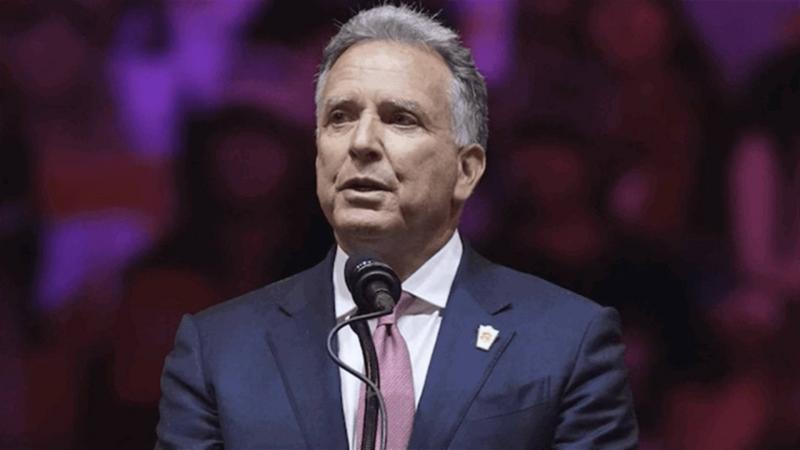Witkoff, Trump’s envoy in the Gaza crisis, has taken on the toughest mission that previous mediators, both from former President Biden’s administration and European envoys, failed to complete. Finding a solution currently seems nearly impossible, as Israel insists on continuing its military operations until hostages are released and Hamas leaves, whereas Hamas refuses to exit Gaza.
In a press interview, Witkoff expressed concerns he heard regarding the ramifications of the crisis. Trump’s envoy fears the Gaza crisis could impact the security and stability of the region, potentially threatening Egypt and causing unrest among Saudi youth.
I agree with him that all countries suffer from the wars and chaos in the region and have a common interest in supporting peace. However, I disagree with his perspective on the implications of the Gaza crisis; it will not drive young people to the streets and it hasn’t, and won’t, threaten Egypt’s security and stability. We might witness a political crisis with Egypt if Washington or Israel decides to expel two million Gazans across its borders. However, this inflow of Palestinians isn't what will destabilize the state, as there are already more refugees from war-torn countries like Sudan and Syria within Egypt, and the situation remains stable with established institutions.
The potential disturbance from displacement could ignite disputes between Egypt and Israel, disrupting peace and their relationship for the first time in forty years. Should Trump have indeed abandoned the idea of deporting Gaza's residents, Witkoff could resolve the crisis and its aftermath with the support of Egypt, Qatar, and other involved parties.
In considering the repercussions, there is a significant difference between insisting on the exclusion of Hamas leaders and expelling two million residents of the strip. Many look to gain from this crisis. Netanyahu seeks to evade accountability for his negligence towards Hamas, while the Hamas camp seeks its salvation. Claiming that Egypt will collapse, Gulf societies will destabilize, the region will ignite, and Washington’s interests will be in jeopardy resembles insurance companies' tactics, which employ future unknowns to instill fear in their clients.
These are partially accurate political analyses with misleading conclusions. Our history spanning over half a century, rich with crisis records, proves these claims wrong. The Palestinian issue, despite its tumultuous phases, has never been a factor in toppling any Arab regime over fifty years. Instead, the opposite might be true; regimes have exploited it to overshadow their internal failures under the guise of confronting Israel. For instance, the fall of Bashar al-Assad’s regime resulted from accumulated U.S. sanctions and primarily its connection with Iran.
In truth, Gaza and its people have been exploited for two decades; Iran uses Hamas in its military balances and political pressures with Israel and the U.S. Netanyahu has used Hamas since 2001 to thwart the remaining implementation of the Oslo Accords and halt the two-state solution project. Today, he extends the war on Gaza since October 2023 to prevent the toppling of his government.
Fifty thousand people have been killed in Gaza, mostly civilians, in a horrific tragedy, yet there have been no spontaneous Arab demonstrations, capital cities have not ignited, nor have regimes in the region fallen.
Every country has internal factors influencing it, notably economic issues like bread and jobs, which might thrust society into turmoil. Politically and in alignment with popular sentiment, all Arab governments have declared their stance against Israel in the Gaza war.
The youth in Saudi Arabia, like the rest of the new generation in the region, certainly disapprove of the destruction, displacement, and shortage of food and medicine afflicting Gaza. What is happening seems like unfair collective punishment. However, this is a region brimming with tragedies, one ending only for another to begin, with everyone preoccupied by daily life concerns.
Witkoff is right in seeking to halt the war and its repercussions, and I believe it is insufficient just to end the Gaza crisis; rather, he has an opportunity to capitalize on it and move towards comprehensive peace negotiations.
The multitude of crises in the region presents a political opportunity; Lebanon with a weakened Hezbollah, Gaza and the West Bank without powerful Palestinian factions, Syria without Assad, and Iran losing its proxies and influence. The world would be better without such chaos.



